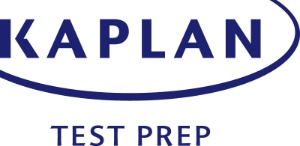NEW YORK--(BUSINESS WIRE)--Kaplan Test Prep’s most recent survey of nearly 400 college admissions officers across the United States finds that the percentage of admissions officers who visit applicants’ social media pages to learn more about them has hit a record high of 40% -- quadruple the percentage who did so in 2008, when Kaplan first explored this issue.* For context, out of those who do so, 89% say they do so “rarely” while only 11% say they do so “often”. And the percentage of admissions officers who say they have Googled an applicant to learn more about them has remained relatively stable over the past two years, at 29%.
But what are the triggers that prompt admissions officers to look beyond the traditional elements of the application (GPA, standardized test scores, extracurriculars) and turn to Google and Facebook? Admissions officers mentioned several trigger points, both positive and negative:
- Interest in Talents: Some admissions officer say they will visit an applicant’s social media page -- often by the applicant’s own invitation -- if the applicant mentions a special talent, for example, such as being a musician, artist, poet, writer, or model. In fact, 42% of admissions officers reported an increase in such invitations compared to two year ago.
- Verification of Awards: Citation of particularly distinguished or noteworthy awards can sometimes trigger an admissions officer’s online search for independent verification; as one officer noted, something “out of the norm.”
- Criminal Records or Disciplinary Action: Some admissions officers say that if an applicant mentions they have a criminal background or a record of disciplinary action, they will do some online digging to get more details.
- Scholarships: Students applying for special scholarships can come under greater scrutiny, as schools want to ensure those receiving the scholarships are fully deserving; extra due diligence can come in the form of online checking.
- Admissions Sabotage: Anecdotally, admissions officers say they occasionally get anonymous tips about prospective students pointing them towards inappropriate behavior. They’ll sometimes dig online to see if it has merit.
Kaplan’s survey also found that social media can cut both ways. Thirty-seven percent of admissions officers say that what they’ve found about an applicant positively impacted his or her application -- and an equal percentage say that what they found negatively impacted an applicant’s admissions chances. Positive findings included discovery of undisclosed leadership roles or community service, while negative findings included criminal offenses, photos of drug or alcohol use, racial prejudice or inappropriate behavior.
“The growth of social media hasn’t made college admissions a whole new ballgame, but it’s definitely impacted the rules,” said Yariv Alpher, executive director, head of market research for Kaplan Test Prep. “What you post online can and may be used in your favor or against you, so it’s important to think about what you share. When in doubt, the best strategy may be to keep it to yourself.”
For a 30-second video illustrating the survey's findings, click here. And to read and comment on a post about this topic on Kaplan's college admissions blog College: Admission Possible, visit here.
For more information about Kaplan Test Prep’s survey, please contact Russell Schaffer at 212.453.7538 or russell.schaffer@kaplan.com.
*For the 2015 survey, 387 admissions officers from the nation’s top national, regional and liberal arts colleges and universities – as compiled from U.S. News & World Report – were polled by telephone between July and August 2015.
About Kaplan Test Prep
Kaplan Test Prep (www.kaptest.com) is a premier provider of educational and career services for individuals, schools and businesses. Established in 1938, Kaplan is the world leader in the test prep industry. With a comprehensive menu of online offerings as well as a complete array of print books and digital products, Kaplan offers preparation for more than 90 standardized tests, including entrance exams for secondary school, college and graduate school, as well as professional licensing exams for attorneys, physicians and nurses. Kaplan also provides private tutoring and graduate admissions consulting services. Additionally, Kaplan operates new economy skills training (NEST) bootcamps designed to provide immersive training in skills that are in high demand in today’s job market and prepare participants for hire.
Note to editors: Kaplan is a subsidiary of The Graham Holdings Company (NYSE: GHC)



